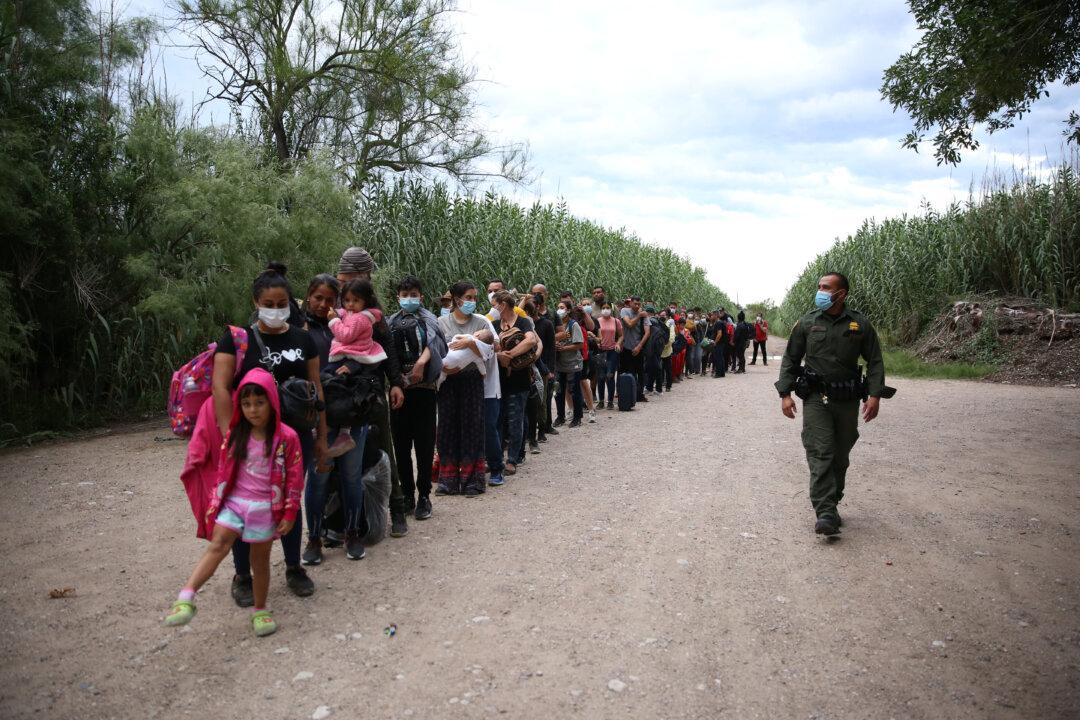DEL RIO, Texas—On any given day in Del Rio, Texas, hundreds of Venezuelans wade across the Rio Grande from Mexico into the United States. They’re carrying more belongings than illegal aliens from most other countries. One woman, who said she was a photographer back home, had her professional Nikon camera equipment in her backpack.
They arrive onshore and proceed to change into dry clothes, tossing the wet ones on the ground. Discarded shoes, many looking new, dot the pathway up from the river in two main locations. Some pull out toothbrushes and clean their teeth.





